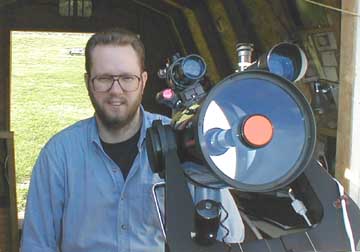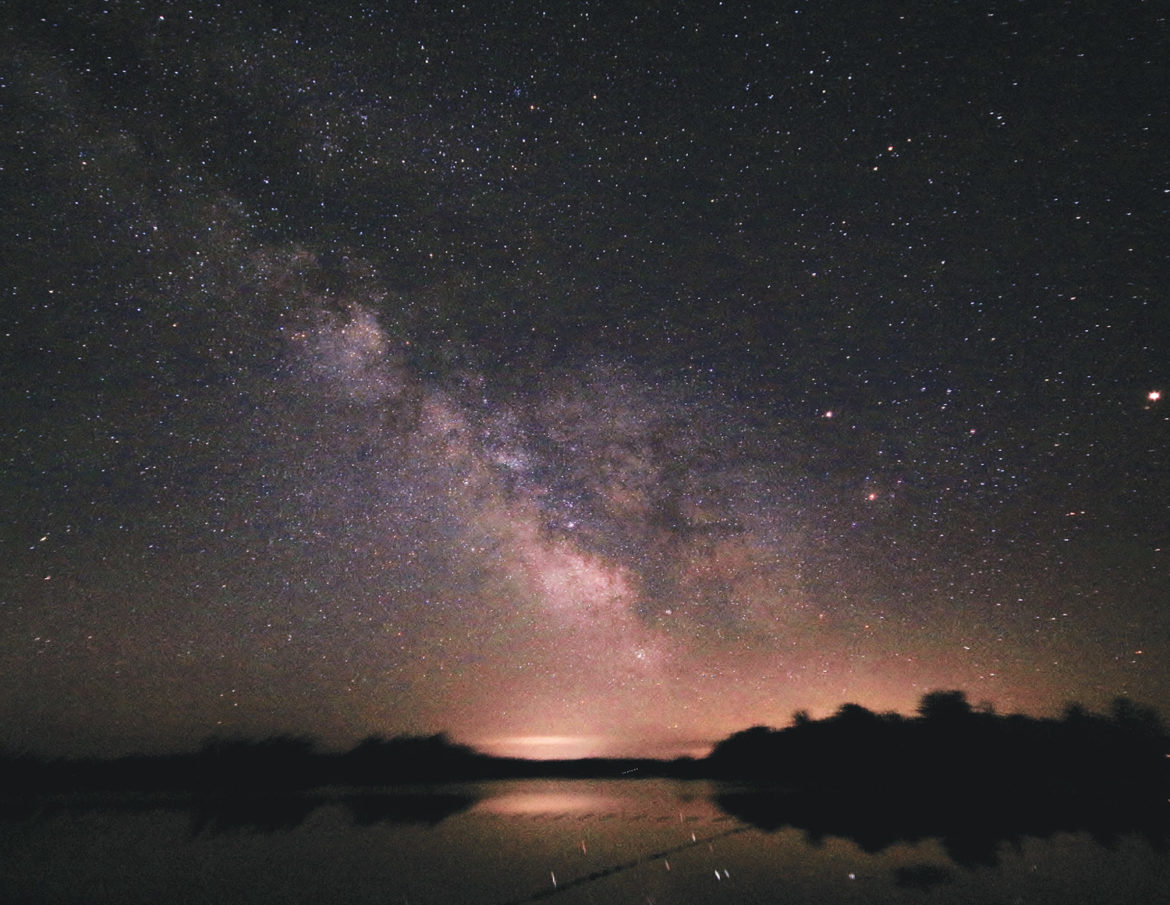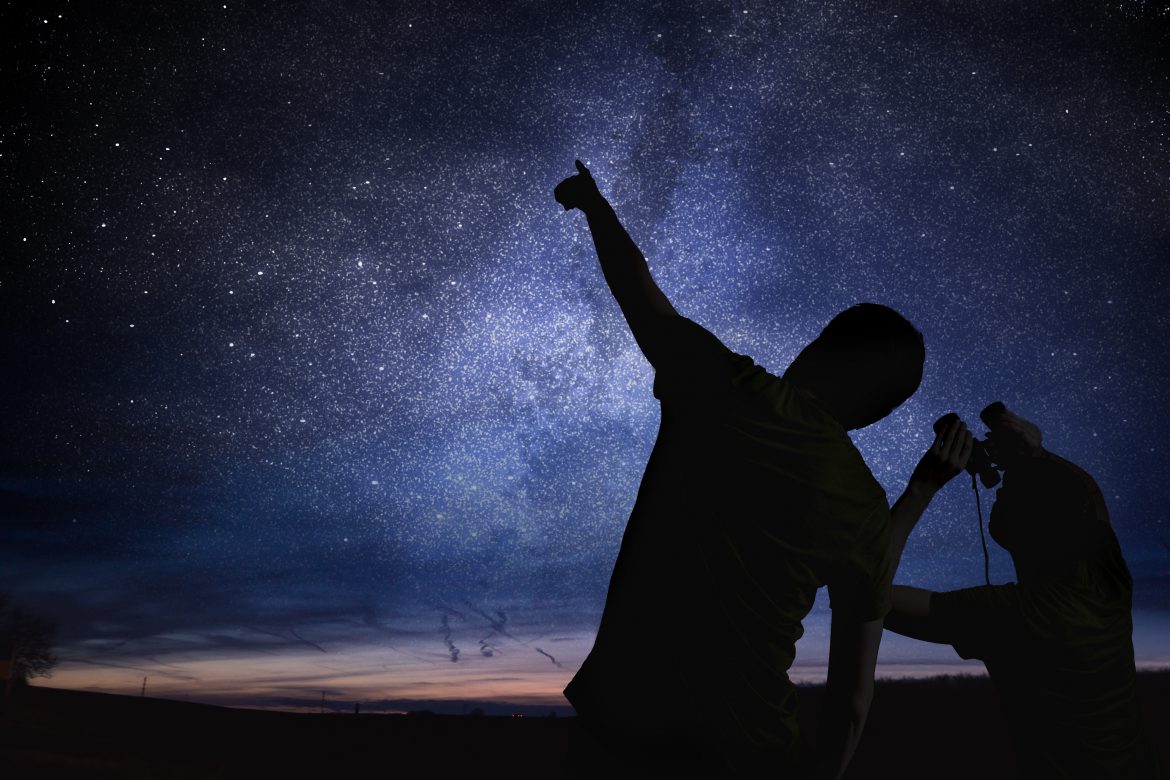Education
Join us this Friday September 9 live and in person as we return to McMaster Innovation Park for our September members meeting! Our guest speaker will be former HAA Chair John Gauvreau. His topic for the evening will be Knowing Galaxias – How we have seen and understood the Milky Way through time.
Anyone who has ventured away from the city lights is struck by the vividness of the night sky and the abundance of stars that appear. The Milky Way is seen stretching across the sky, a soft yet bright light that circles us. Yet our understanding that the Milky Way is a galaxy, an island universe as it was called, is new and was, in astronomical terms, hotly debated as recently as the 20th century.
Let’s have a look at our galaxy through the eyes of the ancients, the discovery of the telescope and right up to the most recent views across the full spectrum available to us now, to really understand our place in our island universe, the Via Lactea.
Continue ReadingThe latest issue of the Hamilton Amateur Astronomers Event Horizon newsletter is now available for download!
In this issue you’ll find…
- HAA Explorers
- The Sky This Month for June 2022
- What’s Up in Awards? June – September 2022
- Earth Grazing Eclipses II – Non Central
- NASA Night Sky Notes
- Eye Candy
- Plus More
Download the latest issue or visit the newsletters section for past issues.
Photo credit: M57, the Ring Nebula, by Pavle Culum
Join us on Friday, June 10, starting at 7:30 PM EDT for our last meeting before we break for summer, as we welcome Dr. Paul Delaney as our special guest. Dr. Delaney will give us a fascinating presentation about Solar Observing.
Amateur astronomers tend to be “night owls” forgetting about THE brightest star in the sky: our Sun. Observing the Sun is relatively easy being available every day of the year, can often be seen through modest cloud cover and does not interrupt those romantic dinners in the evening with your partner. A few precautions must be adhered to when observing the Sun, but tracking sunspots, observing solar prominences, chasing solar eclipses and venturing out at night to observe aurorae are all worthwhile and fulfilling aspects of observing our Sun. This talk will give a backgrounder about our nearest star and some of the values associated with observing it.
Continue ReadingJoin us on Friday, May 13, starting at 7:30 PM EDT, as we welcome Montreal RASC amateur astronomer Karim Jaffer will give a presentation on “Two-Eyed Seeing and the Indigenous Perspective“.
Karim has been the Public Events Coordinator for the RASC Montreal Centre since 2016, helping re-establish the I.K.Williamson Astronomy Library and coordinating both public events and outreach activities throughout the Montreal area, cultivating partnerships with the Rio Tinto Alcan Planetarium, the Institute for Research on Exoplanets (iREx), the Cosmodome, AstroRadio.Earth, Student Astronomy clubs from other post-secondary institutions, and many local amateur astronomy groups. Karim is a member of the RASC National Education and Public Outreach Committee, an Explore Alliance Ambassador, and has recently joined the Lowbrows Astronomical Society and the Astronomical League.
Continue ReadingThe latest issue of the Hamilton Amateur Astronomers Event Horizon newsletter is now available for download!
In this issue you’ll find…
- HAA Explorers
- The Sky This Month for May 2022
- What’s Up in Awards? May-June 2022
- The Search for Life on Mars, Part 1
- Making The Best Of It
- NASA Night Sky Notes
- Eye Candy
- Plus More
Download the latest issue or visit the newsletters section for past issues.
Photo credit: M81 and M82 galaxies, by Michel Audette
The latest issue of the Hamilton Amateur Astronomers Event Horizon newsletter is now available for download!
In this issue you’ll find…
- HAA Explorers
- The Sky This Month for April 2022
- What’s Up in Awards? April-May 2022
- NASA Night Sky Notes
- Eye Candy
- Plus More
Download the latest issue or visit the newsletters section for past issues.
Photo credit: The Masthead Photo is of the Gibbous Moon, by Bernie Venasse:
Join us on Friday, April 8th, starting at 7:30 PM EDT, as we welcome Pittsburgh Pennsylvania amateur astronomer Larry McHenry, who will give a presentation on “Observing the Moon for Beginners”, an introduction to our nearest neighbor in the Solar System.

Larry McHenry has been active in amateur astronomy for over 40 years, and is a member of the Kiski Astronomers, and the Oil Region Astronomical Society (ORAS) in Southwestern Pennsylvania. You can learn more about Larry’s astronomical interests online at his webportal: http://www.stellar-journeys.org/.
The latest issue of the Hamilton Amateur Astronomers Event Horizon newsletter is now available for download!
In this issue you’ll find…
- HAA Explorers
- The Sky This Month for March 2022
- What’s Up in Awards? March-April 2022
- An Astronomical Romance
- Earth Grazing Eclipses – I
- Universal Complexity – Part 2
- NASA Night Sky Notes
- Plus More
Download the latest issue or visit the newsletters section for past issues.
Photo credit: Fox Fur and Cone Nebulas in Monoceros, by Rich and Rosemary Kelsch
How do you get the most of a night under the stars? How do you make sure you never run out of things to explore? If you’re looking to broaden your stargazing experience, having a specific set of goals is the way to go. That’s why so many astronomical organizations have observing programs. In this talk on Friday March 11 at 7:30 PM, author and astronomer John A. Read will discuss three programs, common among these organizations: Explore the Universe, Explore the Moon, and the Messier objects. He’s written several books with the goal of simplifying the stargazing experience. 110 Things to See with a Telescope, 50 Things to See on the Moon, and Learn To Stargaze – No Telescope Required (coming summer 2022). With the use of these simple guides, you’ll be accomplishing your stargazing goals before you know it.
Continue ReadingJoin us online this Friday February 11 at 7:30 PM EST as we feature several fantastic guest speakers on our agenda!
We have our very own Jo Ann Salci and John Gauvreau with John Hlynialuk of the Bluewater Astronomical Society speaking about their ‘Love of Astronomy’ moments as well as Brett Tatton speaking about his Bowling Ball Telescope. You won’t want to miss out!
Continue Reading










